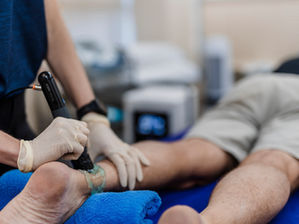HELP WITH IBS A Common Health Problem
- Nov 27, 2018
- 3 min read

Irritable Bowel Syndrome (IBS) is one of the most common problems seen by medical practitioners, accounting for roughly 12% of visits to GP’s. IBS can affect children and adults. Because IBS has no clear medical cause, it is regarded as a functional gastrointestinal disorder.
Although symptoms vary, IBS is generally characterised by chronic abdominal cramping or pain, and altered bowel movement. Other symptoms may include bloating, and sensitivity to certain foods. Symptoms can fluctuate over time and can vary in severity among people. IBS can significantly impact a person’s quality of life, with increased medical visits and restrictions on activities.
What causes IBS?
The cause of IBS has not been clearly established. However, there is a large body of scientific research that has identified a range of factors that appear to play a role. In mild cases, the evidence points to changes in the gut microbiota, possibly as a result of gastrointestinal infection. In these cases, medical and dietary management can help relieve symptoms.
In more severe cases, a range of factors appear to play a role. These include genetic susceptibility, family/personality factors, and psychological factors, including the coping mechanisms that people use to manage stress. More severe cases can also be accompanied by anxiety and depression.
Brain-gut communication
The brain-gut axis is part of the nervous system. It is like an information superhighway that carries messages between the brain and the body. Hormones are biochemical messengers that carry signals that enable bodily functions to adjust in response to outside signals, such as stressors. The term “gut feel” reflects this internal sensing.
In IBS, it is thought that the messaging becomes confused. This results in pain sensations becoming amplified, which, in turn, makes the internal sensors pay more attention, becoming hyper-alert. This causes anxiety. The confusion also causes the signalling system to lose its dexterity for fine discrimination between different sensations. This means that more sensations are likely to be sensed as pain or discomfort.
Over time, this changes how the soft muscle in the gut responds, leading to IBS symptoms. It also creates “gut memories” that act as a warning system when sensations are felt. The gut memories set up a pre-programmed response, including sensitised thoughts, emotions and behaviours. The intention is to avoid distress by restricting movement and activity. However, these restrictions eventually shrink lifestyle. This creates a kind of “new normal” based on minimising discomfort. It also means that the warning system never gets challenged, keeping things the same.
Psychological treatment options
Although some people may find benefit from medication, there is no established medical cure. Psychological approaches, such as cognitive behavioural therapy (CBT), have been found to reduce the impact of symptoms. There is also a strong body of evidence supporting the use of clinical hypnosis. Cognitive hypnotherapy combines CBT with clinical hypnosis. Long-term benefits have been shown in terms of reduction in pain, improvement in smooth muscle activity and bowel function, a greater sense of control, less worry and emotional reactivity, and improved quality of life.
Despite the evidence, there is a general lack of awareness of how clinical hypnosis can help in treating IBS. Clinical hypnosis is not just relaxation or mindfulness. Treatment should be sought from properly qualified health professionals who understand IBS. Treatment needs to be tailored. This requires proper clinical assessment and development of a plan to address the individual factors involved.
As with all situations involving physical discomfort or pain, your GP should be the first point of contact.
Anne Ward is principal psychologist of Mindinsight, providing psychology and coaching services to individuals and organisations. Visit www.mindinsight.com.au or phone 49 42-7660 for more information.

























































